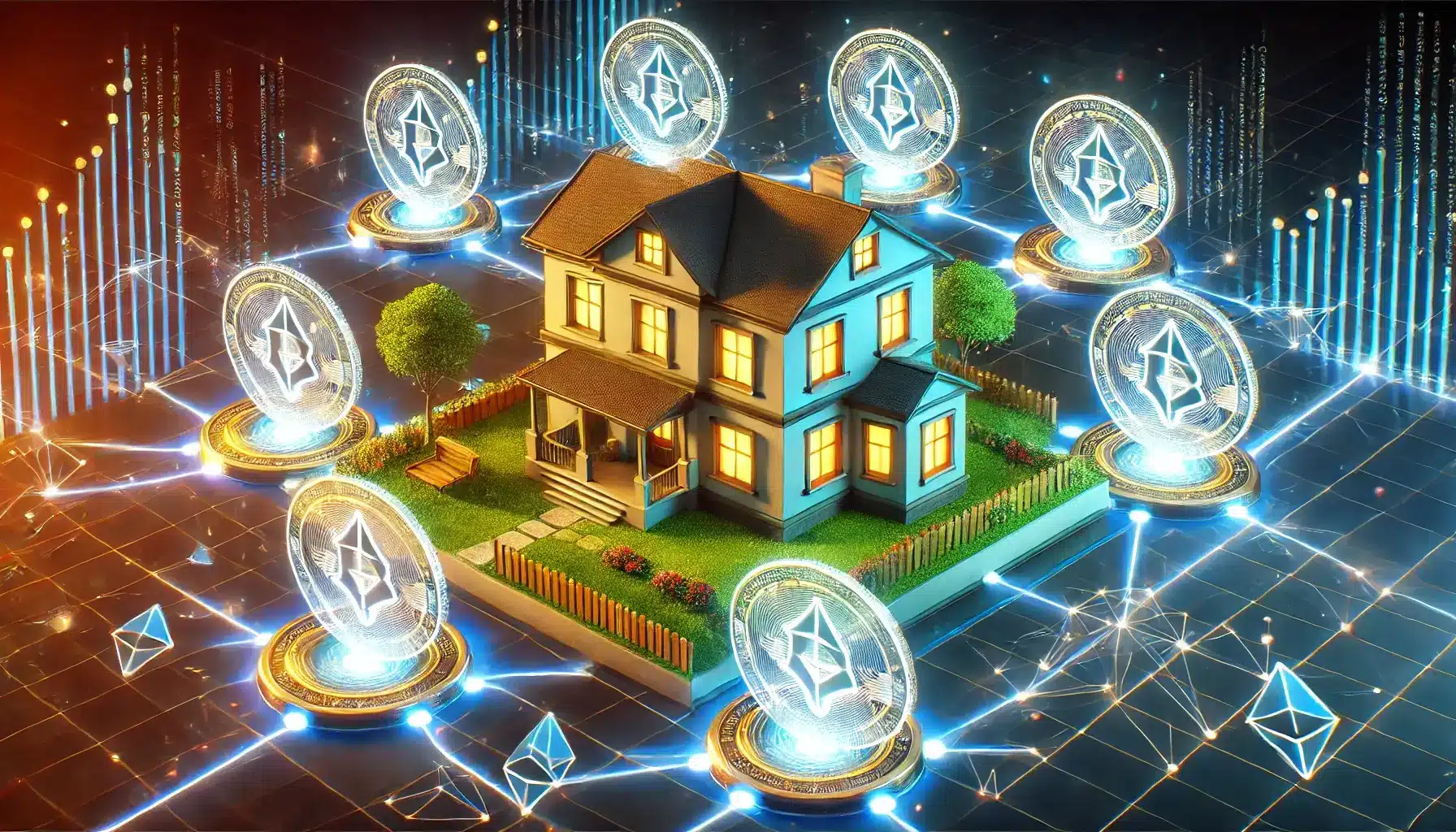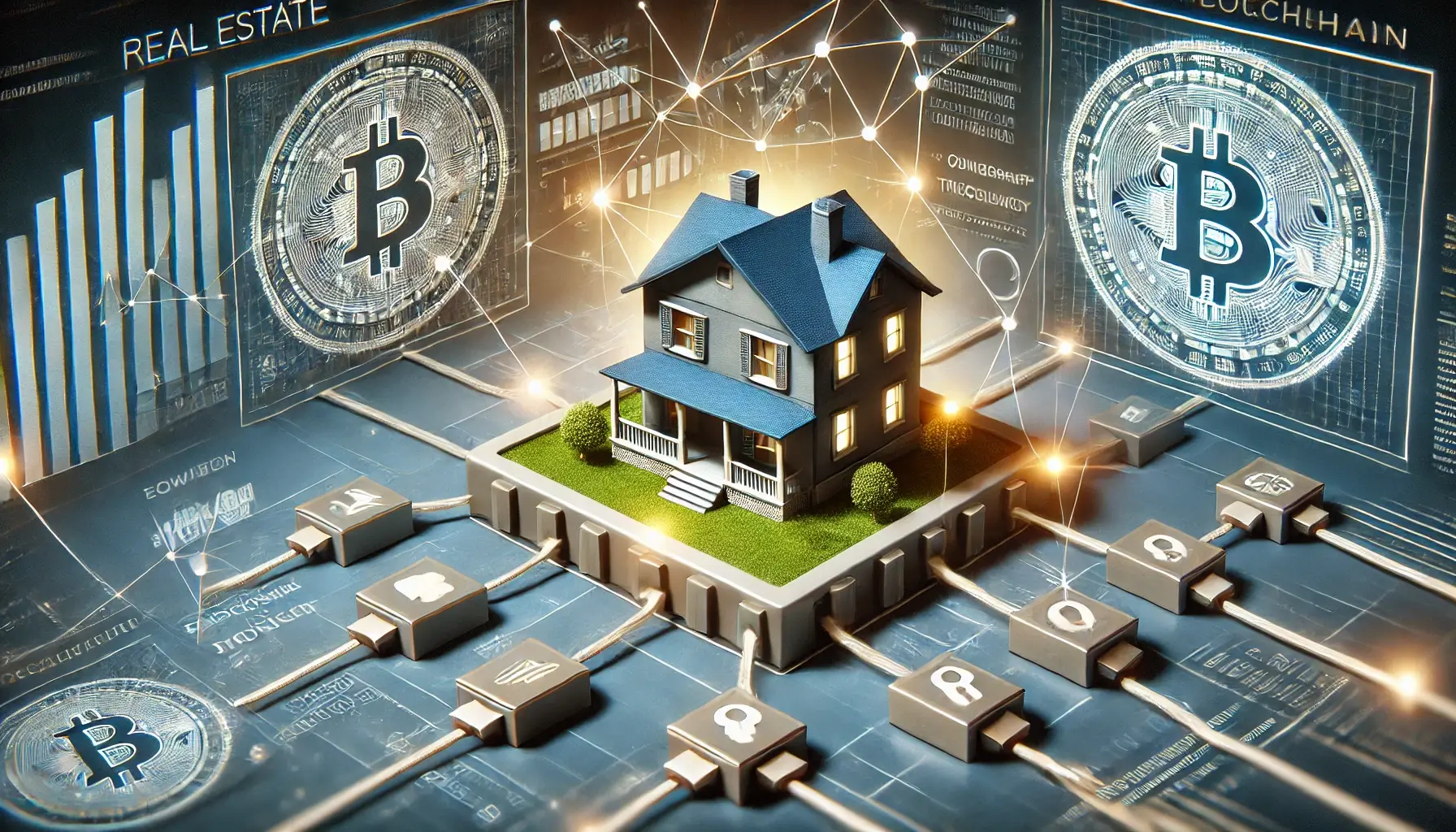How Blockchain Is Revolutionizing the Real Estate Industry: Transforming Transactions and Property Management
Introduction
The real estate industry, traditionally known for its complex and often opaque processes, is on the brink of a technological revolution. Blockchain technology, initially developed to support cryptocurrencies like Bitcoin, is now making waves across various sectors, including real estate. By providing a decentralized, transparent, and secure platform for transactions, blockchain is transforming how properties are bought, sold, and managed. This blog will explore how blockchain is revolutionizing the real estate industry, enhancing security, transparency, and efficiency in property transactions and management.
The Challenges in Traditional Real Estate Transactions
Before exploring how blockchain is revolutionizing real estate, it’s essential to understand the challenges that have long plagued the industry:
- Lack of Transparency: Real estate transactions often involve multiple intermediaries, leading to a lack of transparency. Buyers and sellers may not have clear visibility into the process, which can result in mistrust and disputes.
- Lengthy Processes: The process of buying or selling property is often lengthy, requiring extensive paperwork, manual verifications, and the involvement of numerous parties, including brokers, lawyers, and banks.
- High Transaction Costs: The involvement of multiple intermediaries and the need for manual processes contribute to high transaction costs, making real estate transactions expensive and inaccessible for some buyers and sellers.
- Fraud Risks: Real estate is particularly vulnerable to fraud, with incidents of title fraud, forged documents, and identity theft occurring in various markets.
These challenges highlight the need for a more secure, transparent, and efficient approach to real estate transactions, and blockchain technology is providing just that.
How Blockchain Is Transforming Real Estate
Blockchain technology addresses many of the challenges in traditional real estate transactions by offering a decentralized and transparent platform. Here’s how blockchain is transforming the real estate industry:
1. Decentralized Property Transactions
Blockchain enables peer-to-peer transactions without the need for intermediaries, reducing costs and increasing transparency. By recording property transactions on a decentralized ledger, blockchain eliminates the need for brokers, lawyers, and banks to act as intermediaries.
How It Works:
- Smart Contracts: Smart contracts on the blockchain automatically execute property transactions when predefined conditions are met. These contracts eliminate the need for manual processing and reduce the likelihood of disputes.
- Immutable Records: Blockchain creates an immutable record of every transaction, ensuring that all parties can verify the transaction history. This transparency reduces the risk of fraud and enhances trust between buyers and sellers.
Decentralized property transactions reduce costs, speed up processes, and enhance transparency. For more on how smart contracts are revolutionizing industries, check out our blog on The Future of Blockchain in the Internet of Things (IoT).
2. Enhanced Security and Fraud Prevention
The immutability and transparency of blockchain make it a powerful tool for preventing fraud in real estate transactions. Once a transaction is recorded on the blockchain, it cannot be altered or deleted, providing a permanent and tamper-proof record.
How It Works:
- Title Verification: Blockchain ensures that the title to a property is verified and recorded accurately. This verification process eliminates the risk of title fraud and ensures that buyers receive a clear and legitimate title to the property.
- Identity Verification: Blockchain can also be used to verify the identities of buyers and sellers, reducing the risk of identity theft and ensuring that only authorized parties can engage in transactions.
Enhanced security through blockchain reduces the risk of fraud and provides peace of mind for all parties involved in real estate transactions. To explore more on blockchain’s impact on security, visit our blog on The Role of Blockchain in Enhancing Cybersecurity.
3. Streamlined Property Management
Blockchain is not only transforming real estate transactions but also improving property management. By providing a decentralized and transparent platform for managing property-related data, blockchain streamlines processes such as rent collection, maintenance requests, and tenant screening.
How It Works:
- Transparent Records: Property management companies can use blockchain to maintain transparent records of rent payments, lease agreements, and maintenance requests. Tenants and landlords can access this information in real time, reducing the risk of disputes.
- Smart Lease Agreements: Blockchain enables the creation of smart lease agreements that automatically enforce the terms of the lease. These agreements can also be customized to suit the needs of both tenants and landlords.
Streamlined property management through blockchain improves efficiency, reduces disputes, and enhances the overall tenant experience. For insights into blockchain’s role in ensuring transparency, read our post on The Impact of Blockchain on Supply Chain Transparency.
4. Fractional Ownership and Real Estate Tokenization
One of the most innovative applications of blockchain in real estate is the concept of fractional ownership and real estate tokenization. This concept allows investors to purchase fractions of a property, rather than having to buy the entire property outright.
How It Works:
- Real Estate Tokens: Properties are tokenized on the blockchain, with each token representing a fraction of the property’s value. Investors can purchase these tokens, effectively owning a share of the property.
- Increased Accessibility: Fractional ownership lowers the barrier to entry for real estate investment, making it accessible to a wider range of investors. It also provides liquidity, as tokens can be traded on blockchain-based platforms.
Real estate tokenization democratizes property investment, making it more accessible and liquid. To understand more about the implications of blockchain in different sectors, read our blog on The Future of Digital Identity with Blockchain.

Real-World Applications of Blockchain in Real Estate
Several companies and platforms are already leveraging blockchain technology to transform real estate transactions and property management. Here are a few examples:
1. Propy: Blockchain Real Estate Transactions
Propy is a blockchain-based platform that enables buyers and sellers to complete real estate transactions entirely online. The platform uses blockchain to record transactions, ensuring transparency and security. Propy has already facilitated several high-profile real estate transactions using blockchain technology.
2. RealT: Real Estate Tokenization
RealT is a platform that allows investors to purchase fractional ownership of real estate properties through blockchain-based tokens. Investors can earn rental income proportional to their ownership and trade their tokens on secondary markets, providing liquidity and flexibility.
3. Harbor: Tokenized Real Estate Investments
Harbor is a blockchain platform that specializes in tokenizing real estate assets. By converting real estate into digital securities, Harbor makes it easier for investors to buy, sell, and trade property shares, enhancing liquidity and accessibility in the real estate market.
These platforms demonstrate how blockchain is already being used to streamline real estate transactions, enhance security, and make property investment more accessible. For a deeper dive into blockchain’s impact on various industries, check out our post on The Impact of Blockchain on Supply Chain Transparency.
The Future of Blockchain in Real Estate
As blockchain technology continues to evolve, its impact on the real estate industry will likely grow. The adoption of blockchain-based platforms for property transactions and management is expected to increase, driven by the need for greater transparency, security, and efficiency. Additionally, as more governments and regulatory bodies recognize the benefits of blockchain, we can expect to see increased collaboration and standardization in the industry.
In the future, blockchain could become the standard for real estate transactions, making the process faster, cheaper, and more secure. This evolution will not only benefit buyers and sellers but also create new opportunities for investors, property managers, and developers.
Conclusion
Blockchain technology is revolutionizing the real estate industry by transforming how properties are bought, sold, and managed. Its decentralized, transparent, and secure nature addresses many of the challenges in traditional real estate transactions, making the process more efficient, secure, and accessible. As blockchain continues to evolve, its role in real estate will only become more significant, shaping the future of property transactions and management.
FAQs
1. How is blockchain transforming real estate transactions?
Blockchain transforms real estate transactions by enabling peer-to-peer transactions, reducing the need for intermediaries, and providing a transparent and secure platform for recording property transfers.
2. Can blockchain prevent real estate fraud?
Yes, blockchain can prevent real estate fraud by creating an immutable record of transactions and ensuring that all parties can verify the transaction history and ownership details.
3. What is real estate tokenization?
Real estate tokenization is the process of converting property ownership into digital tokens on the blockchain, allowing investors to purchase fractional ownership of a property.
4. How does blockchain improve property management?
Blockchain improves property management by providing a decentralized platform for managing property-related data, such as rent payments, lease agreements, and maintenance requests, reducing the risk of disputes and enhancing efficiency.
For more insights and detailed guides on cryptocurrency, visit our Crypto Guides Section.
Stay Updated
For the latest updates on cryptocurrency trends and news, follow us on:
- Twitter: https://twitter.com/FreeCoins24
- Telegram: https://t.me/freecoins24
Stay informed with the latest strategies and insights in the world of cryptocurrency at FreeCoins24.io.
Special Offer
For an enhanced trading experience, consider Bybit. Sign up through our referral link to unlock exclusive rewards, including up to $30,000 in deposit bonuses, and elevate your trading journey.
















